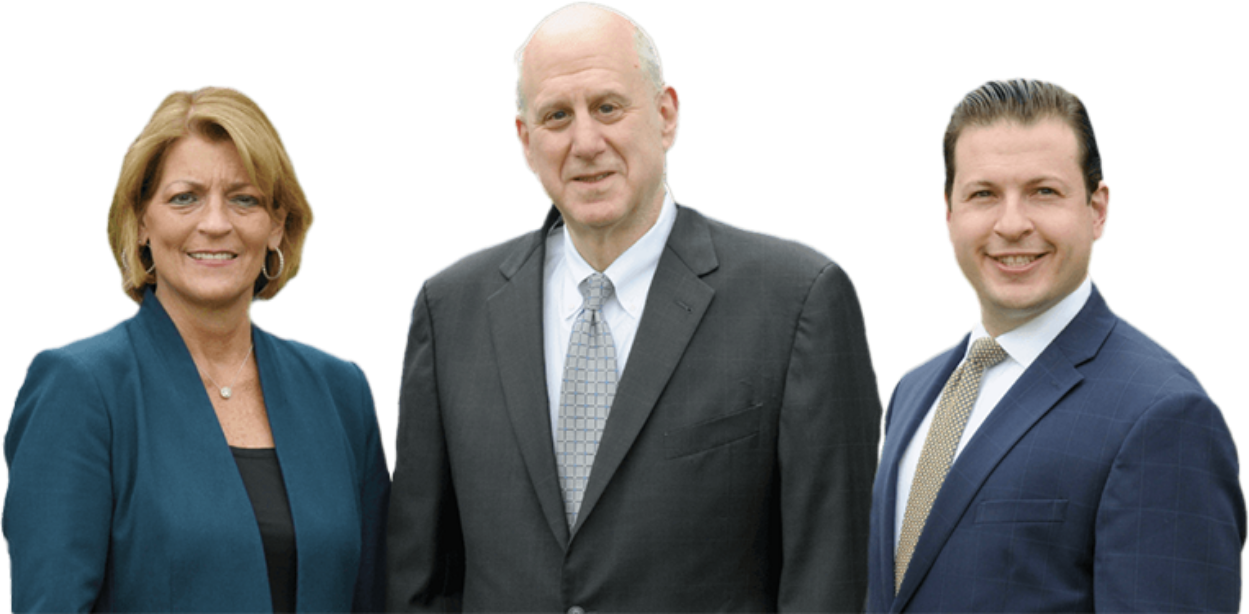Warminster, PA Bankruptcy Lawyer
It is probably safe to say that declaring bankruptcy is not necessarily anyone’s first choice. The prospect of tarnishing your credit score and facing your creditors is intimidating. However, if you incurred significant amounts of debt, you may be pleasantly surprised about all the available options a bankruptcy petition can offer, especially in discharging burdensome debts. Simply put, the bankruptcy process is the most powerful legal means available to eliminate your debt and uphold your rights over your property.
If you are having financial difficulties due to insurmountable debt, bankruptcy may offer a viable route to a clean slate. Your property is at greater risk if you are facing aggressive collection actions or a foreclosure. The experienced attorneys at Young Marr & Associates can answer your bankruptcy questions and guide you through each step of the process. To schedule your free consultation, call (215) 701-6519.
Types of Dischargeable Debt with Bankruptcy in Pennsylvania
Filing bankruptcy can help you obtain a fresh start by discharging debts that can include:
- Outstanding medical bills
- Interest accumulated on credit cards
- Past-due utility bills such as electricity and gas
- Fees and penalties from consumer debts
- Portions of your mortgage, if you have attained a certain equity in your home
Every bankruptcy estate is different, and your attorney can give you a more detailed orientation regarding the debts that are more likely discharged in your situation. Also, the attorney who manages the estate, known as the trustee, will review your documents and work with your attorney to determine which debts are effectively discharged.
Can I Discharge My Student Loans?
The short answer is yes, you can file a proceeding or lawsuit in bankruptcy court establishing why based on your age, income, health, and other factors the repayment constitutions an “undue hardship.” In Pennsylvania, a court will look at something called the Brunner test, consisting of the following elements:
- Extenuating circumstances creating a hardship such that they cannot repay the student loan and maintain a minimum standard of living;
- Those circumstances are not likely to change due to a medical condition or other circumstances;
- The debtor made “good faith” attempts to repay the loan by making payment plans and other arrangements.
Generally, bankruptcy is a last option in that your impediments must be severe and permanent. However, bankruptcy courts tend to show empathy in cases where the person’s situation is so severe that the discharge is warranted.
Bankruptcy and Retirement Savings
If creditors are asking you to withdraw your retirement savings at a penalty, you should consider the option of bankruptcy. All retirement accounts under what is known a “qualified” plan are out of the creditor’s reach up to $1,362,800. This amount is a calculated projection of the average amount needed for retirement.
Qualified accounts are essentially savings and investments subject to penalties if you withdraw the funds prior to reaching retirement age. Qualified accounts include:
- 401(k)
- 403(b) plans
- 457 deferred compensation
- Tax-exempt retirement accounts
- Governmental retirement plans
Non-qualified accounts include:
- IRAs
- Roth IRAs
- SEP-IRAs
- Simple IRAs
In most cases, creditors will not access these funds you worked hard to accumulate. Ask your attorney for more information on this protection of qualified assets.
Benefits of Filing for Bankruptcy
Bankruptcy has many benefits in addition to eliminating your debt. There are a number of other boons that give relief to debtors, including:
- Creditors must cease direct communication with you and discuss any debt through your legal representative.
- Something called the “automatic stay” goes into effect immediately. The automatic stay prohibits your creditors from undertaking new debt collection attempts.
- The bankruptcy court will seek to protect your best interests if a creditor forces you into an untenable reaffirmation of debts that can leave you with negative monthly income.
- Bankruptcy courts take strong positions against banks who engage in usurious practices.
- Your lawyer’s fees cannot be excessive.
Understanding Chapter 7 Bankruptcy
Chapter 7 bankruptcy is also referred to as “liquidation.” What this means is that under the liquidation process, your non-exempt property is sold by the bankruptcy trustee. The key to benefiting from a Chapter 7 filing is understanding what assets are non-exempt, which depends on multiple factors your attorney can explain at greater length. Proceeds from the sale of non-exempt property are then distributed to your creditors. Unless your creditors object, which is rare for personal Chapter 7 filings, your remaining dischargeable debts will be discharged.
However, Chapter 7 bankruptcy does not mean that you will lose everything you own. The U.S. Bankruptcy Code defines certain types and values of property that you are able to keep. This type of property is known as exempt property. An experienced bankruptcy attorney can explain the extent of protections for your property under Chapter 7.
Understanding Chapter 13 Bankruptcy
Chapter 13 is often a more favorable bankruptcy choice for those with property that they would like to keep. Perhaps the most common examples of property that people do not want to lose in Chapter 7 bankruptcy are their home and their car. People then agree to the lengthier Chapter 13 plan where they must make payments so that they can keep their property.
Chapter 13 repayment plans can last for 3 to 5 years. Through this plan, you make payments to the bankruptcy trustee who then sends your payments, as divided in your Chapter 13 plan, to your creditors. Provided that you make all payments, your remaining debts will be discharged.
Our Warminster, PA Bankruptcy Attorneys Can Help
If your debt situation has become unmanageable, contact an experienced bankruptcy attorney who handles both Chapter 7 and Chapter 13 filings. A Young Marr & Associates lawyer can provide knowledgable bankruptcy representation. To schedule your free consultation, call (215) 701-6519 today.



























